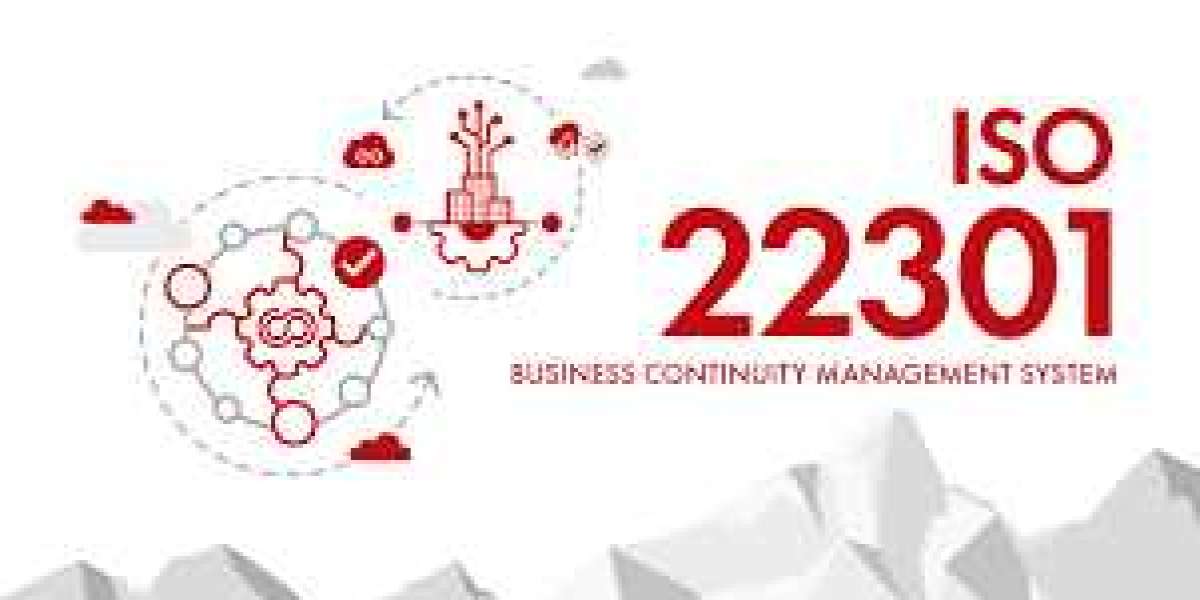Through certification, lead auditors not only enhance their careers but also contribute to building stronger, more resilient businesses capable of navigating uncertainties and protecting their operations in times of crisis.
ISO 22301 Lead Auditor Course: Mastering Business Continuity Management AuditsISO 22301 is the international standard for Business Continuity Management Systems (BCMS), designed to help organizations prepare for and respond to disruptive incidents. An ISO 22301 Lead Auditor course provides professionals with the skills needed to conduct audits of BCMS, ensuring compliance with the standard and enhancing resilience in the face of unexpected challenges. This course is especially valuable for professionals in industries where uninterrupted operations are critical, such as finance, healthcare, and IT. Here are four essential subtopics that highlight the structure and benefits of the ISO 22301 Lead Auditor course.1. Understanding ISO 22301 and Its Significance in Business ContinuityISO 22301 outlines the requirements for a Business Continuity Management System, aiming to help organizations prepare for, manage, and recover from disruptive events. This includes natural disasters, cyberattacks, supply chain interruptions, and other crises that could impact an organization’s ability to operate. By implementing ISO 22301, organizations develop strategies to minimize downtime and continue delivering products or services under challenging circumstances.The significance of ISO 22301 lies in its focus on preparedness, resilience, and responsiveness. For organizations, adopting this standard means establishing processes that safeguard against potential threats to business continuity. An effective BCMS not only reduces the impact of disruptions but also improves an organization’s reputation by demonstrating a commitment to stability and reliability. For auditors, understanding ISO 22301’s requirements is essential for assessing how well an organization’s BCMS aligns with best practices in business continuity, making the Lead Auditor course an invaluable resource for anyone aiming to specialize in this area.2. Core Components of the ISO 22301 Lead Auditor CourseThe ISO 22301 Lead Auditor course is structured to cover the theoretical and practical aspects of auditing a BCMS. Key components of the course typically include:Introduction to ISO 22301 and Business Continuity Principles: The course begins with an overview of ISO 22301 and its role in supporting business resilience. Participants learn about the fundamental principles of business continuity, including risk management, impact analysis, and continuity planning.Understanding the Audit Process: Auditors need to know each step of the audit process, from planning and conducting audits to reporting findings. The course teaches participants how to develop audit checklists, conduct interviews, and gather evidence to assess the effectiveness of a BCMS.Risk Assessment and Business Impact Analysis (BIA): These are critical components of ISO 22301 and essential for identifying threats and prioritizing continuity measures. Trainees learn how to evaluate an organization’s risk assessment process and ensure that business impact analysis is accurately aligned with organizational goals.Audit Techniques and Reporting: The course covers best practices for auditing, including sampling, questioning, and analyzing evidence. Participants also gain skills in compiling comprehensive audit reports, documenting findings, and presenting recommendations for improvement.These core components ensure that lead auditors are well-prepared to evaluate BCMS objectively, identify areas for enhancement, and help organizations improve their resilience against disruptions.3. Benefits of ISO 22301 Lead Auditor CertificationObtaining an ISO 22301 Lead Auditor certification offers significant advantages for both professionals and the organizations they serve. For professionals, certification is a career-enhancing credential that demonstrates expertise in business continuity management and auditing. Certified lead auditors are qualified to assess BCMS independently, making them valuable assets for consulting firms, audit organizations, and large corporations with internal audit teams.For organizations, having certified lead auditors on board can improve their business continuity strategies and enhance their preparedness for potential disruptions. Lead auditors bring an objective perspective to assessing the BCMS, helping companies identify weaknesses and areas where continuity planning can be strengthened. Additionally, organizations audited by certified lead auditors are more likely to maintain compliance with ISO 22301, which can lead to increased client confidence, regulatory compliance, and access to new business opportunities.Certification also encourages continuous improvement. By following the recommendations of lead auditors, organizations can fine-tune their BCMS, ensuring that they remain up-to-date with industry best practices and evolving risks. This leads to a more resilient organization that can adapt quickly to unexpected challenges, minimizing financial and operational impact.4. Steps to Becoming an ISO 22301 Lead AuditorBecoming an ISO 22301 Lead Auditor involves a series of steps, including formal training, hands-on experience, and sometimes a certification examination. Here’s an outline of the typical path to achieving this designation:Complete ISO 22301 Lead Auditor Training: Enroll in an accredited course that covers the requirements of ISO 22301, auditing principles, and business continuity management. The training usually includes practical exercises, case studies, and mock audits to build real-world skills.Develop Auditing Experience: Gain experience by participating in BCMS audits, either under the supervision of experienced auditors or by working with consulting firms that specialize in business continuity. Practical exposure to audits builds competence and helps auditors understand real-world applications of ISO 22301.Pass a Certification Examination: Some training programs include an exam that assesses knowledge of ISO 22301 and auditing skills. Passing this exam is often a requirement for formal certification and demonstrates the auditor’s understanding of BCMS auditing principles.Maintain Certification and Continue Professional Development: Once certified, ISO 22301 lead auditors should engage in continuous professional development to stay current with changes in ISO standards, industry trends, and auditing best practices. This ensures that they remain qualified to assess evolving business continuity requirements.Through these steps, aspiring lead auditors can gain the knowledge and experience needed to evaluate and enhance an organization’s business continuity measures effectively.The ISO 22301 Lead Auditor course is a valuable resource for professionals aiming to specialize in business continuity and risk management. By equipping auditors with the skills needed to evaluate BCMS, the course plays a critical role in fostering resilience and preparedness within organizations. Through certification, lead auditors not only enhance their careers but also contribute to building stronger, more resilient businesses capable of navigating uncertainties and protecting their operations in times of crisis.https://iasiso-africa.com/iso-22301-lead-auditor-training-in-nigeria/

